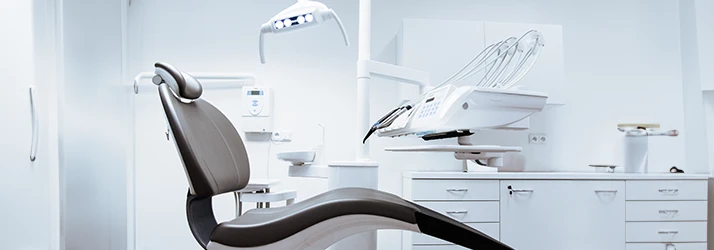Maintaining Good Oral Health in Your Waukesha WI Home
Maintaining Good Oral Health In Your Waukesha WI Home

Good oral health in Waukesha WI is essential for overall well-being, and it starts with a proper home care routine. From brushing and flossing to diet and lifestyle choices, there are several key practices that can help you maintain a healthy smile and prevent dental problems. In this comprehensive guide, we'll delve into the strategies and habits you can adopt to maintain good oral health at home.
Habits To maintain good oral health at home in Waukesha WI
- Brushing Your Teeth:
Brushing your teeth is the cornerstone of good oral hygiene. Follow these tips for effective brushing:- Frequency: Brush at least twice a day, ideally after meals and before bedtime, using a soft-bristled toothbrush.
- Technique: Use gentle, circular motions to clean all tooth surfaces, including the outer, inner, and chewing surfaces.
- Duration: Brush for a minimum of two minutes each time to ensure thorough cleaning and plaque removal.
- Toothpaste: Use fluoride toothpaste to strengthen enamel, prevent cavities, and protect against tooth decay.
- Flossing Daily:
Flossing is crucial for removing food particles and plaque from between teeth and along the gum line. Here's how to floss effectively:- Frequency: Floss once a day, preferably before brushing, to reach areas that a toothbrush cannot access.
- Technique: Use a gentle back-and-forth motion to guide the floss between teeth, making sure to curve it around each tooth in a C-shape.
- Thoroughness: Be thorough and meticulous when flossing, ensuring you clean along both sides of each tooth and below the gum line.
- Type of Floss: Choose dental floss that suits your preferences, whether traditional floss, floss picks, or water flossers, and use it consistently for optimal results.
- Use Mouthwash:
Mouthwash can complement your oral hygiene routine by providing additional protection against bacteria and freshening breath. Consider these tips for using mouthwash effectively:- Antibacterial Formulas: Use mouthwash with antibacterial properties to help kill germs, reduce plaque buildup, and prevent gum disease.
- Alcohol-Free Options: Opt for alcohol-free mouthwash if you have sensitive gums or a history of dry mouth to avoid irritation.
- Follow Instructions: Use mouthwash as directed on the label, swishing it around your mouth for the recommended duration before spitting it out.
- Timing: Use mouthwash at a different time than brushing to maximize its benefits, such as after meals or before bed.
- Maintain a Balanced Diet:
Diet plays a significant role in oral health. Follow these dietary guidelines for a healthy smile:- Limit Sugary Foods: Reduce consumption of sugary snacks, sodas, and candies that can contribute to tooth decay and cavities.
- Eat Nutrient-Rich Foods: Include plenty of fruits, vegetables, lean proteins, and dairy products in your diet for essential vitamins and minerals that support oral health.
- Drink Water: Stay hydrated by drinking water throughout the day, which helps rinse away food particles and maintains saliva production for natural cleansing and protection.
- Limit Acidic and Staining Foods:
Acidic foods and beverages can erode enamel, while staining foods can discolor teeth. Consider these tips for minimizing their impact:- Acidic Foods: Limit consumption of citrus fruits, vinegar-based foods, and acidic drinks like coffee, tea, and wine to protect enamel.
- Staining Foods: Reduce intake of foods that can stain teeth, such as berries, tomato sauce, and dark-colored beverages, or rinse your mouth with water after consuming them.
- Avoid Tobacco Products:
Tobacco use, including smoking and chewing tobacco, can have detrimental effects on oral health. Here's why you should avoid tobacco products:- Stained Teeth: Tobacco products can stain teeth and contribute to yellowing or discoloration over time.
- Gum Disease: Tobacco use increases the risk of gum disease, including gingivitis and periodontitis, which can lead to tooth loss and other serious oral health issues.
- Oral Cancer: Tobacco is a major risk factor for oral cancer, including cancers of the mouth, throat, and tongue, highlighting the importance of quitting tobacco for overall health and well-being.
- Practice Proper Dental Care Habits:
In addition to brushing and flossing, incorporate these dental care habits into your routine for optimal oral health:- Replace Toothbrush Regularly: Replace your toothbrush every three to four months or sooner if the bristles become frayed to ensure effective cleaning.
- Use Protective Gear: Wear a mouthguard during sports activities to prevent dental injuries and trauma to teeth, gums, and jaw.
- Avoid Teeth Grinding: If you grind your teeth (bruxism), use a night guard to protect teeth from wear and damage while sleeping.
- Attend Regular Dental Check-ups: Schedule regular dental exams and cleanings every six months or as recommended by your dentist to monitor oral health and address any concerns promptly.
- Practice Good Oral Hygiene Habits for Children:
Children require special attention to develop good oral hygiene habits early on. Consider these tips for promoting oral health in children:- Start Early: Begin cleaning your child's gums with a soft cloth or infant toothbrush as soon as their first tooth appears.
- Supervise Brushing: Supervise young children while brushing to ensure they use proper technique and brush for the recommended duration.
- Limit Sugary Snacks: Encourage healthy eating habits by limiting sugary snacks and offering nutritious alternatives like fruits, vegetables, and dairy products.
- Seek Professional Dental Care When Needed:
Despite diligent home care, it's essential to seek professional dental care when needed. Here are signs that indicate you should see a dentist:- Tooth Pain: Persistent toothache or sensitivity to hot, cold, or sweet foods may indicate tooth decay, infection, or other dental problems.
- Bleeding Gums: If your gums bleed when brushing or flossing, it could be a sign of gum disease (gingivitis or periodontitis) that requires professional treatment.
- Visible Changes: Noticeable changes in your teeth, gums, or oral tissues, such as swelling, redness, lumps, or lesions, should be evaluated by a dentist.
- Bad Breath: Chronic bad breath (halitosis) could be a sign of underlying dental issues, such as gum disease or tooth decay, that require professional assessment and treatment.
Maintaining good oral health at home is achievable through consistent and effective oral hygiene practices, dietary choices, lifestyle habits, and regular dental check-ups. By brushing and flossing diligently, eating a balanced diet, avoiding harmful habits like tobacco use, and seeking professional dental care when needed, you can preserve the health and beauty of your smile for years to come. Remember, a healthy smile contributes not only to your oral health but also to your overall well-being and confidence.
Hillcrest Family Dental
1751 E Main St
Waukesha, WI 53186
(262) 544-1755


